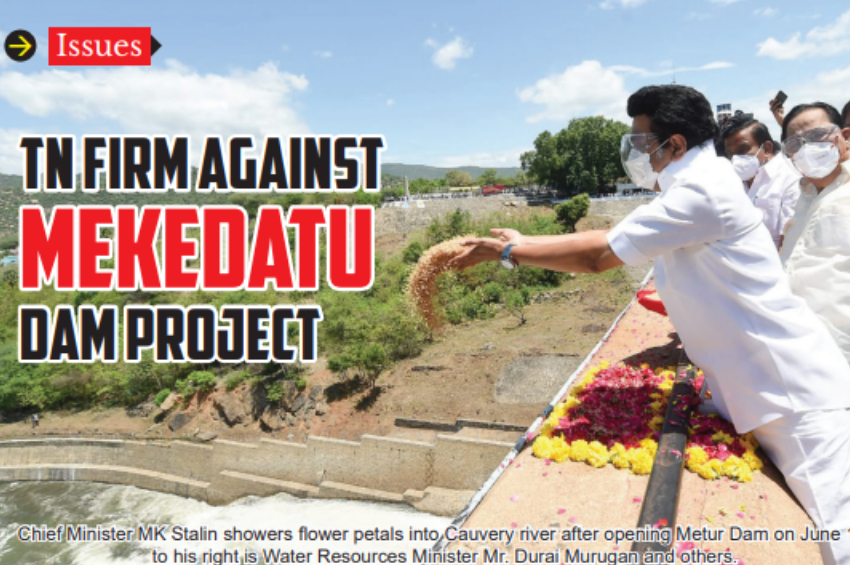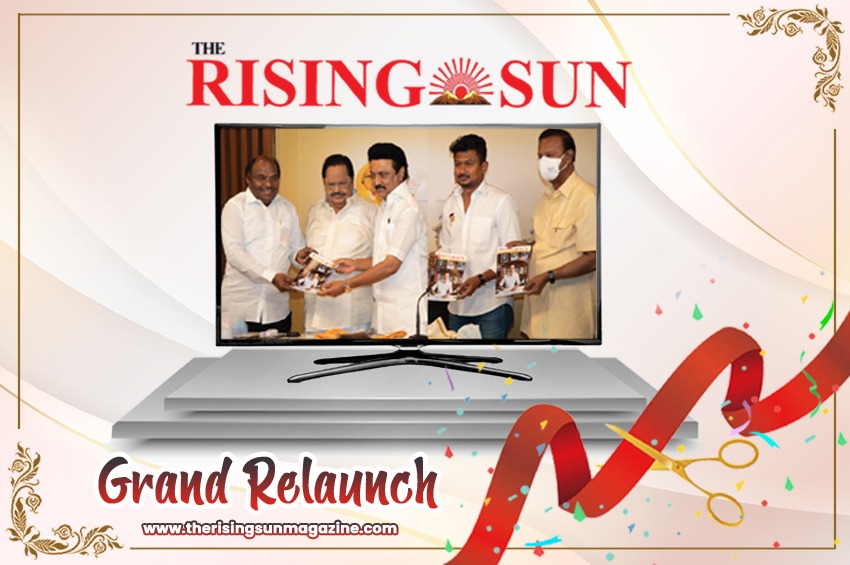Time and again Tamil Nadu had been opposing Karnataka Government’s move to build a balancing reservoir at Mekedatu across Cauvery. And when Chief Minister M K Stalin asserted that Tamil Nadu has full rights on Cauvery and declared his government would not allow the project under any circumstances, Karnataka virtually took a step back.
The Mekedatu dam issue, which had long been a bone of contention between the two states, came to the limelight again - soon after the DMK government assumed office on May 7. When Karnataka made fresh moves to start the project, Tamil Nadu stood vehemently. Like his predecessors, Mr Stalin was more assertive on Tamil Nadu’s rights on Cauvery.
Karnataka’s claim that the Mekedatu dam was aimed at meeting the drinking water needs of Bengaluru city and for electricity generation is “not true and it is to deceive us,” Mr Stalin said, strongly opposing the project. Not only Karnataka, Tamil Nadu also has full right on Cauvery as the river traversed more through Tamil Nadu than Karnataka. “We have full right on Cauvery and we have established this right legally,” Mr Stalin asserted.
Wanting Tamil Nadu to raise its voice in unison on the issue, the Chief Minister had not only convened an all-party meeting to elicit the support of the opposition parties in the state but led a delegation to the Union Government to stop the Mekedatu dam project.
Approaching the contentious issue in a clear perspective, Mr M.K Stalin said the Mekedatu dam initiative is a ‘conspiracy’ to block flow of water to Tamil Nadu from the catchment areas below Kabini, Krishnarajasagar, sub-basins of rivers Shimsha, Arkavathi, Suvarnavathy and other small rivers.
Since such areas do not have reservoirs, water reached Tamil Nadu without any hindrance and the free flow would be blocked if a dam was built at Mekedatu, he said. Kabini, Krishnarajasagar and sub-basins were sources of water supply to Tamil Nadu under the first component of the final order of the Cauvery Water Tribunal as modified by the apex court, he pointed out.
“If Mekedatu dam is built, water that we get (now) will be stored in this new reservoir and Karnataka would release only the remaining portion of water from the proposed dam after fulfilling its needs,” Mr M.K Stalin rightly argued.
“IF MEKEDATU DAM IS BUILT, WATER THAT WE GET (NOW) WILL BE STORED IN THIS NEW RESERVOIR AND KARNATAKA WOULD RELEASE ONLY THE REMAINING PORTION OF WATER FROM THE PROPOSED DAM AFTER FULFILLING ITS NEEDS,” MR STALIN RIGHTLY ARGUED
“We have to demonstrate that Tamil Nadu is united in its thought on this livelihood issue,” Mr M.K Stalin said addressing the all-party meeting in Chennai on July 12. “Under no circumstances we will allow the Mekedatu dam and the Tamil Nadu government is firm about it,” he said.
The Supreme Court too made it clear that no construction can be taken up in Mekedatu without the prior consent of lower riparian states and it is highly condemnable that the Karnataka government is now taking steps in full swing to build the dam at Mekedatu in violation of the apex court order, he said.
In a bid to exert pressure on Karnataka, Mr Stalin took up the issue with Prime Minister Narendra Modi and requested him to prevail upon the Karnataka government not to go ahead with the project. “The Prime Minister assured us of all assistance”, Mr Stalin said after the meeting him in Delhi in June.
When Water Resources Minister Durai Murugan led an all-party delegation, comprising the opposition AIADMK and others to Delhi on July 16, Union Jal Shakti Minister Gajender Singh Shekhawat made it clear that the Detailed Project Report (DPR) prepared by Karnataka on the Mekedatu project will “not be accepted” as it was done “unilaterally.”
“The Union Minister also told us that Karnataka would need the permission of Tamil Nadu, Puducherry, and Kerala – the riparian states for going ahead with the DPR,” Mr Durai Murugan said.
And when the then Karnataka Chief Minister B S Yediyurappa wrote to Mr M.K calling for a negotiated settlement and requested Tamil Nadu not to oppose the project, Mr Stalin wrote back reiterating the State’s position and asked him not to pursue the project across the Cauvery.
Mr Stalin while stressing the need for cooperation and good relationship between the two States, said the Mekedatu project would jeopardise the availability of water to Tamil Nadu. When newly appointed Chief Minister Basavaraj Bommai said Karanataka would go ahead and build the dam, Durai Murugan warned that his stand amounted to showing disregard to the Supreme Court.
Amid the stand-off, Mr Stalin opened the Mettur dam on the customary date of June 12 this year, much to the joy of farmers, who are taking up the Kuruvai cultivation in the Delta region. Ahead of opening the dam, he inspected Kallanai and the desilting works being taken up in Thanjavur and Trichy districts.




